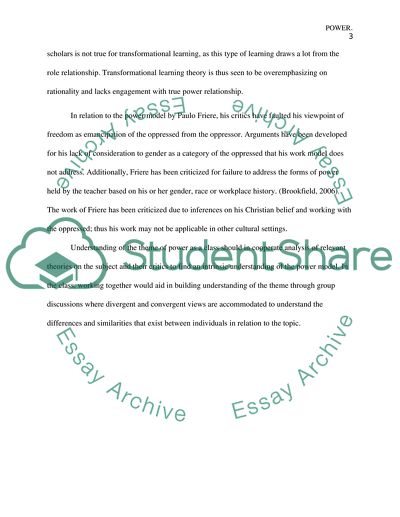Essay on Power Example | Topics and Well Written Essays - 250 words. Retrieved from https://studentshare.org/psychology/1682290-essay-on-power
Essay on Power Example | Topics and Well Written Essays - 250 Words. https://studentshare.org/psychology/1682290-essay-on-power.


